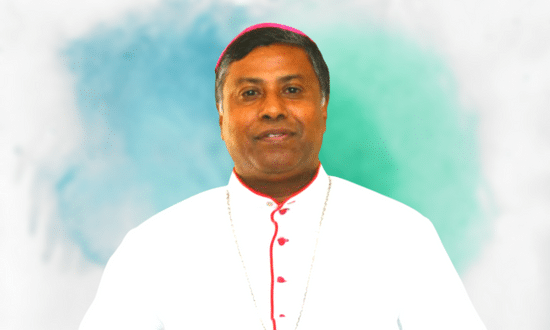
DHAKA (Agenzia Fides): “The interim government in power in Bangladesh is doing its best, working against corruption and for transparency. The executive, led by Mohammad Yunus, is made up of people who seem sincerely committed to the good of society,” said Archbishop Bejoy D’Crize of Dhaka, Pakistan, speaking on the present and future of the country where a student uprising between July and August 2024 led to the resignation of former prime minister, Sheikh Hasina, who fled to India.
“The interim government gave itself about two years to carry out the necessary reforms in the country, listening to the representatives of the student movement, civil society, political movements and religious communities,” Archbishop D’Cruze said.
“I met Yunus and he assured me that he is committed to respecting the rights of all, including those of religious minorities such as Hindus and Christians,” the archbishop continued.
Meanwhile, Yunus announced the establishment of six commissions to deal with reforms in as many areas as possible: the electoral system, the police, the judiciary, anti-corruption, public administration and the constitution.
“The issues on the agenda are diverse and challenging, and we need time to take the right steps. I believe that the Bangladeshi people must now be patient and confident,” Archbishop D’Cruze explained, stressing, “It is important that democracy is always protected, that the rights of religious and ethnic minorities are guaranteed, that the secularity of the state is not abandoned and that the rule of law is always respected and promoted.”
The issues on the agenda are diverse and challenging, and we need time to take the right steps. I believe that the Bangladeshi people must now be patient and confident
Archbishop D’Cruze
Meanwhile, Bangladesh’s International Crimes Tribunal began trials for crimes against humanity committed during anti-government protests in July and August, issuing arrest warrants for former Sheikh Hasina and 45 others, including several prominent members of the Awami League, Hasina’s party.
The new government reinstated the court and appointed judges who have examined more than 60 complaints of crimes against humanity and genocide. Hasina, the desposed prime minister, is implicated in over 200 investigations for murders, attempted murders, kidnappings and other crimes.
Archbishop D’Cruze said, “In truth, no one expected such a major turnaround. The former prime minister had ruled for three terms and was accused of political manipulation, corruption and lack of transparency. Her government was then harsh towards any political opposition and restricted freedom of opinion, conscience and speech. After initial protests, the police responded with strong violence, which further inflamed tempers and increased the scale of the revolt, which ultimately led to the fall of the government.”
He said, “It was a shock for many, but it must be said that the country needed a change. Now we are trying to build a just and peaceful future. It is true that we are in a transitional phase of uncertainty, that the protests have not yet completely subsided and that there have been some problems, for example for the Hindu communities, which have suffered unfounded aggression.”
Archbishop D’Cruze said, “There is a fear that radical Islamist groups could seize the opportunity and recruit new followers. As Bangladeshi Catholics, we have confidence and hope in the good work and goodwill of the Yunus government, which we hope will lead the country into a new historic phase of stability, justice and prosperity.”



